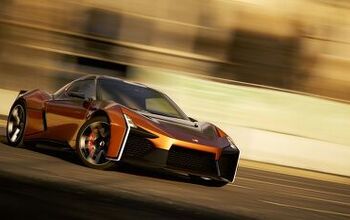Future Of Industry, Mobility To Be Shaped At Detroit Tech Conference
Part of the automobile’s future may be linked to concerns of safety, fuel efficiency and the environment, but connected- and autonomous-vehicle technologies, among other disruptors, look to flip the table on the century-old game as the 21st World Congress on Intelligent Transport Systems gets underway this week in Detroit.
Automotive News reports industry execs, government officials and researchers will converge to sort out the future of the automobile as shaped by mobility technology. At present, companies like Tesla, Uber and Google are driving the rest of the industry toward a place where vehicles can be upgraded via software, communicate with other vehicles and the road, and drive itself to pick up a passenger or two before driving itself to the intended destination.
As such, the old guard are doing their best to prepare for the world to come. General Motors, for example, plans to introduce V2V and semi-autonomous systems in two Cadillac sedans by 2017, and has joined up with Ford, Honda and other automakers in a research program with the University of Michigan’s Mobility Transformation Center where shared autonomous vehicles could one day be the norm. Meanwhile, Daimler bought the Mytaxi and RideScout apps last week “to make mobility as simple as possible,” according to subsidiary Moovel’s CEO, Robert Henrich.
The end game for the automotive industry may see automakers go from just building vehicles to becoming “personal-mobility companies,” in the words of Ford chair Bill Ford, upending a business model that has served the industry since it began over a century ago.
Seattle-based writer, blogger, and photographer for many a publication. Born in Louisville. Raised in Kansas. Where I lay my head is home.
More by Cameron Aubernon


































Comments
Join the conversation
Food for thought, the industry has been ignoring for ages: typically the car, that four-wheeled metal box, as it is known today... - represents the biggest consumer purchase/expense most people do - depreciates at a rate that would drive people insane if that happens to real estate - sits idle 90-95% of the time, taking up precious space - when used the car's monthly energy bill easily exceeds that of most households' - weighs 15-25 times as much as the often times only occupant (the driver) - ergo: most of the stuff we 'feed' the car is used to move around the car, not the occupant(s) - single occupancy of a car is most frequent during rush hour, contributing to gridlock. There's your challenge, Detroit. And if you won't, others will come up with new alternatives. Detroit's shrinking U.S. market share should be enough motivation.
It's what Jay Leno once said about eco-cars in a TopGear episode (he approved): there's more left of everything for you to enjoy your Porsches, your V8-powered Chevy's etc. Fuel prices may come down, etc. Perhaps we need to get rid of the notion of big car companies and automobiles rolling off the assembly line, and think of 'providers' and 'mobility solutions' instead, at least in part. Compare it to the old telephone companies; calling to another continent costed fortunes...
What is the pictured vehicle, please? I'll take two.